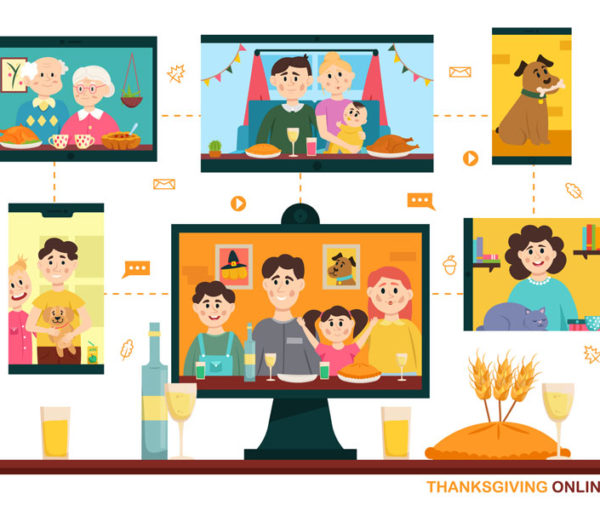November Is National Diabetes Month

The American Diabetes Association reports that today, more than 122 million people in the U.S. are living with diabetes. The association says that managing the condition is more important than ever in 2020. Diabetes raises the risk of serious complications from COVID-19—and among the 230,000 people in the U.S. who have died of COVID, 40% had diabetes.
Knowing our risk factors for diabetes is very important. Each year, experts urge families to observe National Diabetes Month right along with Thanksgiving, taking the opportunity to discuss their family health history when everyone is together. This year, to prevent the spread of the virus, many families will be having virtual get togethers online. But that doesn’t mean they can’t have the conversation. These talks are something life-affirming for which the whole family can be thankful!
Here are three ways that diabetes is truly a family affair:
Families often share a genetic risk of diabetes. This Thanksgiving, whether you’re having an in-person gathering or an online celebration, take time to create a family health history. This information can encourage family members to be tested for diabetes, because untreated, the disease can lead to serious health problems such as blindness, loss of limbs, kidney failure and heart disease.
The National Diabetes Education Program (NDEP) suggests these questions to ask as you create this health history:
- Does anyone in the family have diabetes? Did any family members who have passed away have the disease?
- Has anyone in the family been told they have prediabetes—blood sugar that’s higher than normal that might progress to diabetes?
- Has anyone in the family been told they need to lower their weight or increase their physical activity to prevent type 2 diabetes?
- Did any women in the family develop diabetes when they were pregnant (“gestational diabetes”)?
If the answer to any of these questions is yes, other family members may be at an increased risk. Talk to your doctor to learn more about managing your risk and preventing or delaying diabetes.
The risk comes not only from nature, but also nurture. Healthy living patterns are “passed down” in families as surely as genes are! Families may share lifestyle factors that influence their risk, and studies show this includes spouses and people who enter a family through adoption. So talk about habits, too. Is everyone in the family eating a healthy diet, getting the recommended amount of exercise, maintaining a healthy weight, and getting tested regularly for diabetes?
Families help their loved ones manage diabetes. Diabetes can have an impact on the whole family. It can be emotionally and financially challenging. Family may be called upon to take their loved one to the doctor and to remind them of their care routine. Here are suggestions from the NDEP about how family can help an adult member who is living with diabetes:
- Ask your loved one if they would like reminders about doctor visits, when to check blood sugar, and when to take medicine.
- Help your loved one write a list of questions for the health care team.
- Help your loved one eat well, with meals that include foods such as fruits, vegetables, and whole grains. Cut back on sweets by serving fresh fruit for dessert.
- Find things you can do together such as walking, dancing, or gardening. Walking together daily gives you time to talk and stay active.
The NDEP experts remind us, “We are each other’s best resources. Preventing diabetes and managing diabetes involves the entire family. Talk with your family about your health and your family’s diabetes risk. What we can do alone to fight diabetes and its consequences, we can do so much more effectively together.”
Today, the challenges may be greater—but so are the consequences if we don’t do all we can to manage diabetes, and help our loved ones do so.
The information in this article is not intended to replace the advice of your healthcare provider. Talk to your doctor about your risk factors for and managing of your diabetes.
Source: IlluminAge with information from the American Diabetes Association and the National Diabetes Education Program.

